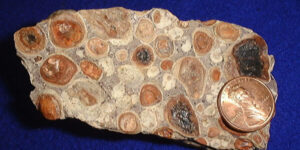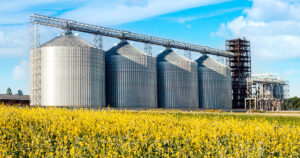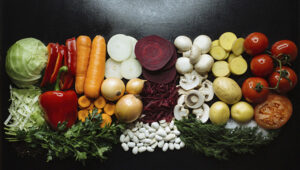
In January-July of this year, Ukraine increased imports of coke and semi-coke in physical terms by 6.1% compared to the same period last year, to 364,669 thousand tons from 343,678 thousand tons.
According to statistics released by the State Customs Service (SCS) on Tuesday, imports of coke in monetary terms decreased by 2.8% during this period, to $121.049 million.
It was mainly imported from Poland (89.62% of supplies in monetary terms), Indonesia (7.90%), and the Czech Republic (2.45%).
During the period in question, Ukraine exported 3 tons of coke worth $2,000 to Albania.
As reported, Metinvest suspended the operations of the Pokrovsk Coal Group in January this year due to changes in the situation on the front line, electricity shortages, and the deterioration of the security situation.
Last year, Ukraine increased its imports of coke and semi-coke in physical terms by 2.01 times compared to 2023, to 661,487 thousand tons, importing it mainly from Poland (84.76% of supplies in monetary terms), Colombia (7.74%), and Hungary (2.69%). In monetary terms, imports increased by 81.9% to $235.475 million.
In 2024, the country exported 1,601 thousand tons of coke worth $368 thousand to Moldova (99.18%) and Latvia (0.82%), while in January, March, October, and November 2024, there were no exports, and in 2023, exports amounted to 3,383 tons worth $787 thousand.

According to statistics from the State Customs Service, imports of trucks to Ukraine in July 2025 amounted to $85.07 million, which is 6% less than in June of this year.
According to the published data, most trucks were imported last month from Poland – $20.1 million (26.4% more), France – $14.4 million (5.4% less), and the US – $5.7 million (16.4% less).
In total, over the first seven months of this year, trucks worth $563.6 million were imported into Ukraine, including $117.5 million from Poland, $89.5 million from France, and $87 million from the US.
Imports of trucks from all other countries in January-July amounted to $269.5 million.
At the same time, according to statistics, Ukraine exported only $3.7 million worth of trucks in seven months, mainly to Turkey (53% of exports of such vehicles), Romania (42.6%), and Moldova (22%).
As reported, in 2024, imports of trucks to Ukraine increased by 30% compared to 2023, to $947.84 million, with the largest share coming from Poland (almost 20%).

The volume of passenger car imports to Ukraine, including cargo-passenger vans and racing cars (UKT ZED code 8703), increased by 21.1% in July this year compared to June 2025, to $608.443 million.
According to statistics released by the State Customs Service of Ukraine, China ($147.87 million) became the leader among the three largest suppliers of cars to Ukraine last month, while in June it was not among the top three.
The United States ranked second, with imports from this country increasing by 30% to $106.82 million, and Germany ranked third, with imports of passenger cars increasing slightly to $87.14 million.
Japan did not make it into the top three last month, with imports worth $62.53 million in June.
At the same time, in January-July of this year, passenger cars worth more than $3.16 billion were imported into Ukraine, with Germany ($561.47 million), the US ($525.16 million), and China ($407.67 million) being the largest suppliers.
Imports of passenger cars from other countries during the same period amounted to $1.67 billion.
At the same time, in January-July, Ukraine exported only $4.54 million worth of such vehicles, in particular to the UAE (29.3%), the Czech Republic (15.7%), and Poland (11%).
According to the State Customs Service, passenger cars accounted for 6.89% of total imports to Ukraine in January-July and 0.02% of exports.
As reported, in 2024, passenger cars worth $4.385 billion were imported into Ukraine, 8% more than a year earlier, and $10.1 million worth were exported (2.7 times less).
The top three countries from which the most cars were imported last year were the United States ($817.9 million, an increase of 13.2% compared to 2023), Germany ($682.16 million, an increase of 5.8%), and Japan ($495.71 million, a decrease of 12%).

In January-July of this year, Ukraine doubled its imports of aluminum ore and concentrate (bauxite) in physical terms compared to the same period last year, from 6,772 tons to 13,670 tons.
According to statistics released by the State Customs Service (SCS) on Tuesday, during this period, imports of bauxite in monetary terms increased by 65.6% to $1.623 million from $980 thousand.
At the same time, imports came mainly from Turkey (74.74% of supplies in monetary terms) and China (25.26%).
Ukraine did not re-export bauxite in 2025, as in 2024 and 2023.
As reported, in 2024, Ukraine increased bauxite imports in physical terms by 77.4% compared to 2023, to 35,173 tons, and in monetary terms by 74%, to $4.107 million. Imports were mainly from Turkey (78.48% of supplies in monetary terms), China (19.48%), and Spain (1.9%).
In 2023, Ukraine imported 19,830 thousand tons of bauxite worth $2.360 million.
In 2022, Ukraine reduced imports of aluminum ores and concentrates (bauxite) in physical terms by 81.5% compared to the previous year, to 945,396 tons. Imports of bauxite in monetary terms decreased by 79.6% to $48.166 million. Imports came mainly from Guinea (58.90% of supplies in monetary terms), Brazil (27.19%), and Ghana (7.48%).
Bauxite is an aluminum ore used as a raw material for the production of alumina, which is then used to produce aluminum. It is also used as a flux in ferrous metallurgy.
Bauxite is imported into Ukraine by the Mykolaiv Alumina Plant (MHP).

The market of elevator equipment in Ukraine has undergone dramatic changes over the past eight to nine years, with the share of Ukrainian equipment currently at 80% and foreign equipment at 20%, the press service of KMZ Industries reports.
The company noted that in 2016, the share of Ukrainian equipment was only 20%, and foreign equipment – 80%, and as of 2025, the situation is mirrored in key product segments.
“Ukrainian farmers have gradually rethought their approaches to choosing suppliers: they have tried domestically produced equipment and made sure that it is not only on par with imported equipment in terms of quality, but also has a number of additional significant advantages. These include service availability, design for climatic conditions, knowledge of the local context, and the manufacturer’s ability to work in war conditions on an equal footing with the client,” explained Natalia Kulakovska, Marketing Director at KMZ Industries.
She noted that the state program of partial compensation of 25% of the cost of Ukrainian-made equipment played a major role in this market transformation, which allowed farmers to “try their hand at it.” After the first purchase, most of them did not return to imported elevator equipment.
“According to an independent study, in 2024, the share of Ukrainian transport equipment for elevators was 48.8% in monetary terms. If we talk about metal storage silos, the growth is even more significant: in 2024, Ukrainian producers already owned 81.4% of the market. These are not just numbers – it is a proof of trust in domestic production and its ability to meet the modern needs of elevator storage infrastructure for agricultural producers and agro-processors,” Kulakovska summarized.
KMZ Industries is the largest manufacturer of elevator equipment in Ukraine and produces a full range of equipment, including silos, grain dryers, transport equipment and separators, as well as provides automation and installation services.
According to the company, it has built more than 5 thousand facilities. KMZ Industries has silos in operation with a total capacity of over 12.5 million cubic meters.

In January-June 2025, Ukraine imported $152.018 million worth of “borsch” vegetables, including potatoes, carrots, beets, cabbage, and onions.
According to statistics released by the State Customs Service (SCS), Ukraine increased its imports of potatoes by 7.9 times to 121.606 thousand tons during this period, purchasing them for $65.145 million, which is 6.9 times more than in the same period in 2024.
It is noted that in the first half of the year, 36.49% of the market of potatoes imported to Ukraine belonged to Poland, which was able to earn $ 23.77 million from its sale. At the same time, Egypt supplied 13.73% of the imported volumes for $ 8.945 million, the Netherlands – 11.66% for $ 7.594 million.
In January-June 2025, Ukraine slightly reduced onion imports by 1.1% to 15.747 thsd tonnes, spending $17.69 mln on the purchase of onions compared to $15.5 mln a year ago.
The top three suppliers of onions to Ukraine were China and Egypt, which accounted for 26.96% and 21.55% of imports, which in monetary terms amounted to $4.769 million and $3.812 million, respectively. The Netherlands closed the top three with a share of 18.85%, supplying this product for $3.335 million.
During this period, Ukraine imported cabbage 2.5 times more than a year ago – 47.252 thousand tons versus 18.969 thousand tons, respectively, spending 2.4 times more on its purchase than in the first half of 2024 – $42.075 million versus $17.804 million. Its main suppliers were Macedonia (33.3% of supplies worth $14.022 million), Poland (24.9% worth $10.481 million) and the Netherlands (13.47% worth $5.668 million).
In January-June 2025, Ukraine increased imports of carrots, beets and celery by 7.9 times compared to the same period last year – up to 43.065 thsd tonnes, spending $27.108 mln against $4.36 mln respectively.
The main suppliers of these goods were Poland, Moldova and the Netherlands, which accounted for 47.04%, 13.53% and 11.93% of the imported volumes, respectively. In monetary terms, these countries earned $12.752 million, $3.667 million and $3.235 million, respectively, from the supply of root crops to Ukraine.